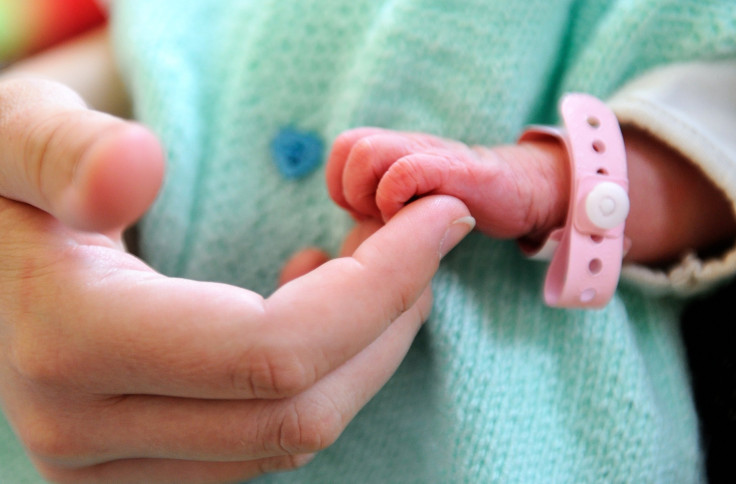Surrogate Mother Births Baby 4 Years After Biological Parents Are Dead

A surrogate in China gave birth to a baby in December, four years after his parents were killed in a car crash. They named the baby, born in a hospital in Guangzhou, in Guangdong province, Tiantian, which meant sweetie in Mandarin.
“We named him Sweetie because we hoped his arrival would bring sweetness to us after the bitterness,” Hu Xingxian, Tiantian's maternal grandmother, said, the Week reported.
Before their untimely deaths in 2013, the couple was undergoing fertility treatment with the intention of bearing a child through in-vitro fertilization (IVF).
According to Planned Parenthood, IVF is “one of the more widely known types of assisted reproductive technology (ART). IVF works by using a combination of medicines and surgical procedures to help sperm fertilize an egg, and help the fertilized egg implant in your uterus.”
As part of the procedure, Tiantian’s parents froze several embryos in a Nanjing hospital, securely kept at minus 196 degrees in a liquid nitrogen tank.
After their death, Tiantian’s maternal and paternal grandparents-in-waiting fought a protracted legal battle to win rights to inherit the fertilized eggs that were stored in the medical facility. Following a year-long battle later with the state authorities, the grandparents were finally granted the court order to obtain four of the frozen embryos.
Dr. Ding Lijun, who works at Nanjing hospital, said despite being handed the court order, the authorities insisted they would only hand over the embryos to a medical facility and not directly to the grandparents.
“There are thresholds for practicing every technology, and without the threshold, which we must strictly abide by, the technology runs the risk of being abused,” she said.
This posed a second hurdle for the grandparents since no other medical facility in China was ready to take in the embryos out of legal concern. The fact that surrogacy was illegal in China and parents of a couple did not have legal rights to inherit the latter’s embryos further complicated matters.
Finally, they managed to convince a hospital in Laos to take responsibility for the embryos and impregnate a surrogate using them.
However, that wasn’t the end of their troubles. No airlines would accept a thermos-sized bottle of liquid nitrogen, leaving them no other choice but to transport the embryos by car, 9 News reported. The grandparents had to smuggle the embryos out of Chinese borders and into Laos in order to successfully complete the process.
As for telling the baby boy about the unusual manner he came into this world, Tiantian’s paternal grandfather, Shen Xinnan, said it was best to discuss the details when his grandson was old enough to understand. For the time being, he will be given the impression that his parents live overseas.
“For sure we will tell him what happened - what choice do we have?” Shen said.
© Copyright IBTimes 2025. All rights reserved.






















